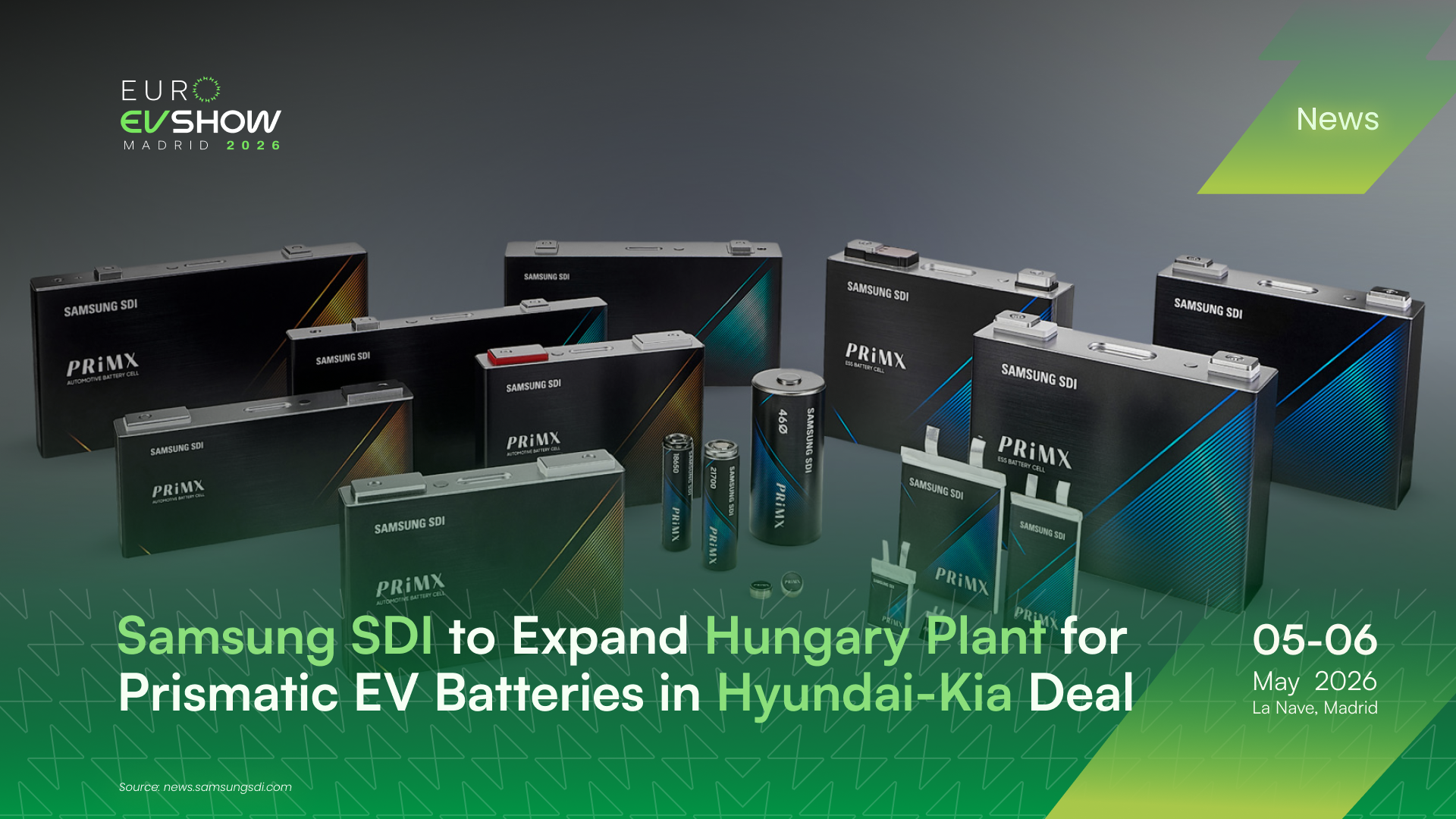Hungary, 26 May 2025: Samsung SDI has unveiled plans to significantly expand and modernise its battery manufacturing facility in Göd, Hungary, in preparation for producing advanced prismatic batteries for Hyundai and Kia electric vehicles in Europe.
The South Korean battery maker has secured 1.65 trillion won (approximately €1.05 billion) through a stock share scheme to finance this development. The investment will be used to renovate the first production facility and expand the second, allowing the plant to meet the growing demand from European automakers.
This strategic expansion aligns with a 2023 agreement between Samsung SDI and Hyundai Motor Group, including its subsidiary Kia, to supply battery cells for their European EV models. The agreement, which spans from 2026 to 2032, includes an order volume sufficient to power approximately 500,000 vehicles. These batteries will feature sixth-generation (P6) prismatic cells using NCA (nickel, cobalt, aluminium) cathode chemistry with a high nickel content of 91%, alongside silicon-based anodes, which offer enhanced performance over conventional graphite-based materials.
The batteries are expected to be used in future Hyundai and Kia EVs, including the upcoming Kia EV2, a compact electric SUV set to launch in Europe next year. Samsung SDI's decision to prioritize the production of stacked prismatic batteries, which are known for their higher energy density, reflects the increasing demand for more efficient and longer-lasting EV power solutions. As a result, the company plans to convert its first Hungarian factory to produce only stacked prismatic batteries and expand the production capacity of the second facility accordingly.
The Göd site, which began operations in phases starting in 2017, is currently Samsung SDI’s most critical European location. With a current annual production capacity of 40 GWh, which is enough to supply batteries for around 600,000 mid-sized EVs, the plant plays a vital role in the company’s global supply chain. It currently manufactures both wound and stacked prismatic battery cells, but the new supply contracts have shifted the focus entirely to stacked technology due to its superior performance.
With this ambitious expansion, Samsung SDI is strengthening its foothold in the European EV market and deepening its collaboration with key automotive players. The investment not only supports the electrification goals of Hyundai and Kia but also marks a significant step forward in Europe's transition toward sustainable transportation, reinforcing Samsung SDI’s role as a leader in advanced battery innovation.

